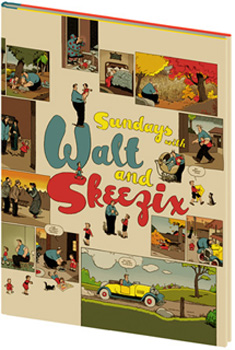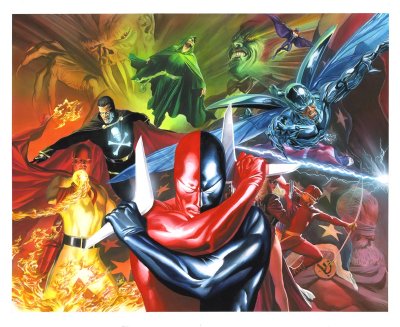If you’re a publisher, that is to say, someone who publishes (and presumably wants to publish) books, then you should do so. It’s a lot of work though, you might not want to be a publisher… Publishing books means finding people to create the books for you, selling those books, and making everyone involved some money. As a publisher, it is in your best interests to develop positive relationships with the authors working with you. If that author should happen to hit it big, your positive relationship means you may get to publish their next book, and the next, etc., recouping the costs you’ve invested in developing their career and making a tidy profit. You know: business.
Part of what damages a good working relationship, or ensures that there will never be a good working relationship, is trying to take advantage of your authors from the moment they think about working for you. Of course, as a for-profit business your allegiance is to the bottom line and trying to make as much money off of this author’s work as possible, but there’s a difference between that and taking advantage of their naivete, their good-nature, or their desire to work in the publishing industry. Following that method, of salary caps and removing the author’s name from the work, no matter how successful an author is with the publisher, the author will eventually realize that they’re not getting their due–either monetarily, or morally–and the author will resent the publisher for it.
So as a publisher, you’ve invested as little money as you could get away with to make an author a star, but created huge resentment on the part of the author, and your contract sucks, and so the author moves along and reaps the benefit of your hard work making them a star from other publishers. Publishers that know how to play fair. Because there is literally no reason for that author to stick with you for the long term, because you’ve made it abundantly clear exactly what you think of them and their work. You’ve poisoned the well, to use a metaphor, and there’s no going back.
Instead, what if you’re not a publisher? What if maybe you were thinking about being a publisher at one point, but it didn’t work out or you decided to go another way, and instead you decided to not publish books but instead, publish proof of concept that could get adapted into other media? What if you became a company that ‘created’ intellectual property and published pitches for films, television, video games, animation, or other comics? Then it wouldn’t matter how little you pay your authors, or how poorly you treat them, or if you set up wave after wave of contract designed to take as much as possible from the ‘creators’ of the work (even though your contracts specifically state that they give up all of their rights, are no longer the legal creators of the work, and you don’t need to credit them if you don’t feel like it). Because you’re not a publisher, you’re not interested in publishing their books going forward. Publishing costs money, keeping books in print costs more money than it’s worth to you. It’s much smarter to just buy (or rent in perpetuity) a concept outright for as little money as you can get away with and disguise that as a ‘publishing contract’. Something along the lines of “you do all the work, I’ll pay you about $50 a page for it, and then if we sell it to Hollywood I’ll cap your earnings and rake in the dough.”
But what if that got too expensive? What if it was too much money to dole out $50 a page and print up these fat 192 page books, sometimes 2 or 3 of them, and because you’re not really a publisher you’re having a hard time selling them anyway? What could you do to just get the intellectual property with less then a tenth of the cash outlay? Say 750 bucks? And you’ve got a year’s “exclusive” to shop it around and generate interest in it and see if anyone will bite, before you offer up a ‘real’ contract (which, as we’ve established, is horrible). Well that’d be a coup, wouldn’t it? As long as you weren’t interested in working with that creator ever again, remember. But don’t worry, there will be a steady stream of folks willing to buy into your act for as long as it takes for you to get the hollywood blockbuster machine going. Hell, they’ll even thank you for it.
But I can do you one better, not-a-publisher.
What if you took all of their media-rights up front, just for the act of dropping a few grand (which will immediately be paid back to you as long as you can rustle up 500 pre-orders through the direct market) to put the book into print, and paid them on the back-end, after the book had ‘turned a profit’? No advance, no payment in exchange for services, just “I’ll print your book and take a good chunk of your movie rights for the pittance it costs to print 2000 copies of your work?” A back-end payment that will never come because you’ve printed barely enough books for the title to break even, and you’ve already ensured that you get paid first… Hell, you don’t even need to publish the things yourself, you can just be a “studio” and let someone else foot the print bill, while you concentrate on doing nothing at all but hopefully raking in the bucks based on everyone’s hard work but your own. Why isn’t anyone doing that?
Or you could just lie to people outright. Take their work, promise payment, conveniently lose contracts. The publishing industry has a proud tradition of shitty fly-by-night scam artists. You’ll lose what little credibility you had left, but hey, the bottom-line is the bottom-line, and you’ve gotta make money. Besides, as long as your lawyer is better than their lawyer (and it is, remember these are poor, dumb, young people you’re taking advantage of) you can do whatever you like and get away with it for a very long while indeed. Worse people that you have done it and gotten away with it.
So, do you want to be a publisher? Or not? Your choice.
– Christopher




 I just got back from being working about 17 hours, all told, at Anime North today. I’m pretty tired.
I just got back from being working about 17 hours, all told, at Anime North today. I’m pretty tired. Over at The Comics Reporter, Tom Spurgeon’s “Five For Friday” feature solicits reader reaction on a specific theme, like your five favourite superheroes, five important moments in comics, or this past Friday’s “
Over at The Comics Reporter, Tom Spurgeon’s “Five For Friday” feature solicits reader reaction on a specific theme, like your five favourite superheroes, five important moments in comics, or this past Friday’s “ I hesitate to draw any major conclusions about this from such a limited sample pool… I do think that choosing a major reprint project is risky for any publisher, because every fan has their own particular favourites, and fans find different value in different projects. For example, despite everything he has done to turn me off of his work, Dave Sim is single-handedly responsible for making me want to dig deeper into the work of Al Williamson thanks to Glamourpuss #1 a few weeks back. It’s an oddball project, for sure, but if you can divorce Dave Sim the person from Dave Sim the guy who created a pretty solid comic book talking about the history of illustration and illustrators, it’s a good read. If not, please promise me at least to not wreck the copies I’ve got on the rack.
I hesitate to draw any major conclusions about this from such a limited sample pool… I do think that choosing a major reprint project is risky for any publisher, because every fan has their own particular favourites, and fans find different value in different projects. For example, despite everything he has done to turn me off of his work, Dave Sim is single-handedly responsible for making me want to dig deeper into the work of Al Williamson thanks to Glamourpuss #1 a few weeks back. It’s an oddball project, for sure, but if you can divorce Dave Sim the person from Dave Sim the guy who created a pretty solid comic book talking about the history of illustration and illustrators, it’s a good read. If not, please promise me at least to not wreck the copies I’ve got on the rack.







 Although he was under no obligation to do so, Tom Spurgeon didn’t post the full text of my response to the news that Fantagraphics has signed an exclusive deal with Diamond… It’s a little more balanced and nuanced then what ended up in the CR piece, in my always-humble opinion, so I figured I’d post it here.
Although he was under no obligation to do so, Tom Spurgeon didn’t post the full text of my response to the news that Fantagraphics has signed an exclusive deal with Diamond… It’s a little more balanced and nuanced then what ended up in the CR piece, in my always-humble opinion, so I figured I’d post it here.